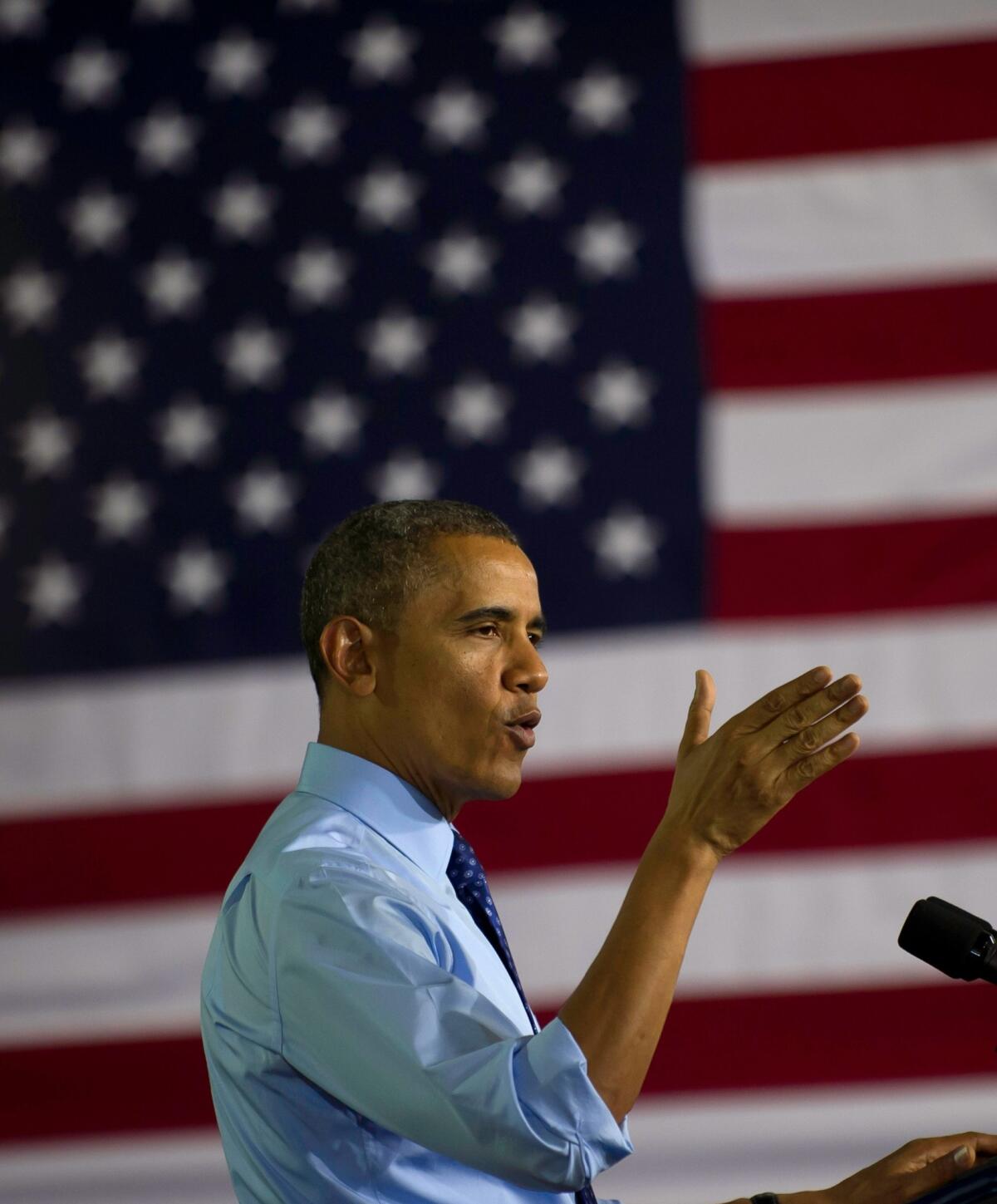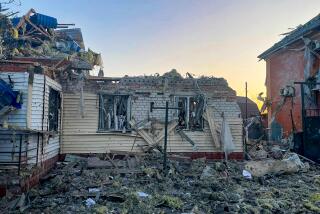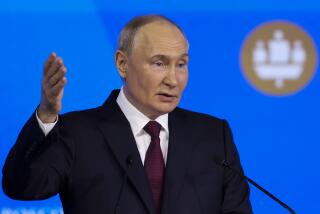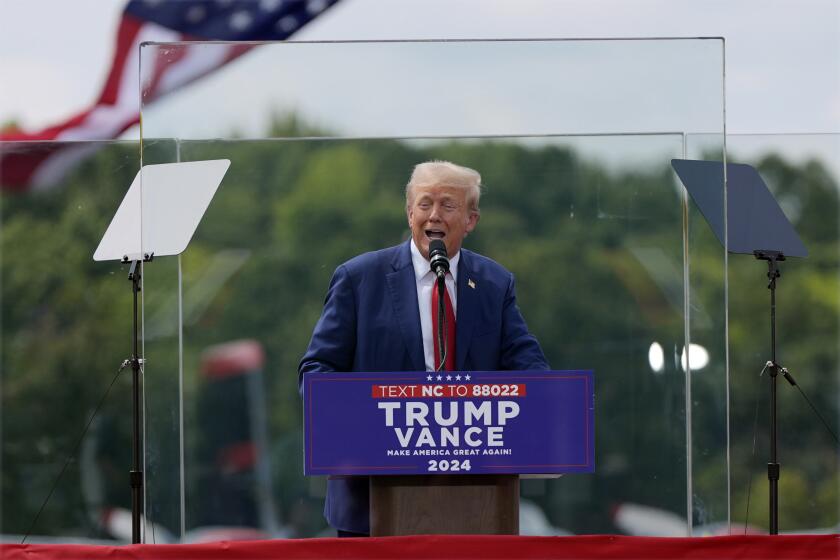Obama accuses Putin of destabilizing Ukraine

WASHINGTON -- President Obama accused Russian President Vladimir Putin of supporting “non-state militias” in southern and eastern Ukraine in an attempt to destabilize the country, and warned that the Russian leader was risking economic pain and international isolation.
“What I have said consistently is that each time Russia takes these kinds of steps that are designed to destabilize Ukraine or violate their sovereignty that there are going to be consequences,” Obama said in an interview Wednesday with CBS News.
He said he believed that sanctions imposed on Putin’s allies and the threat of more to come had already taken a toll on the Russian economy and scared away investors.
“Mr. Putin’s decisions are not just bad for Ukraine, over the long term they’re going to be bad for Russia,” Obama said.
The White House said Wednesday that it was readying the next round of economic penalties against Russia, even as it prepared for a meeting Thursday in Geneva of senior-level diplomats from Ukraine, Russia, the U.S. and Europe.
“We are actively preparing new sanctions,” White House Press Secretary Jay Carney said. “We are also looking at tomorrow’s meeting for an indication that Russia will or intends to pursue a path of de-escalation rather than escalation.”
Senior administration officials, who would not be named discussing the matter, said they did not expect a breakthrough at the Geneva talks and suggested that more sanctions could be issued soon afterward.
The next round of penalties would probably take aim at the so-called oligarchs and their business interests that have profited under Putin. Officials believe inflicting pain on this relatively small class of influential Russians is the best way to pressure Putin to change course.
Such measures would still fall well short of what the U.S. has laid out as the economic move of last resort: sector-wide sanctions. Officials have said they’re reserving that penalty to try to deter Putin from a full-scale invasion of eastern Ukraine.
The White House has been vague on whether a more incremental escalation from Moscow might also trigger the most severe sanctions. Officials also noted that they’re considering upping nonlethal assistance to Ukraine’s military.
But the U.S. is rejecting pressure to provide arms, officials said. Such a move would only escalate the conflict, signal to Putin that the U.S. was accepting a military solution to the standoff and risk turning the conflict into a proxy war, they said.
The administration instead is pushing a political resolution and has discussed a series of governmental reforms that would decentralize power away from Kiev. The notion of federalism came up in a phone conversation between Obama and Putin on Monday, the officials said.
Obama told his Russian counterpart that the U.S. was interested in letting Ukrainians decide the direction of their country, officials said.
“We don’t need a war. What we do need is recognition that countries like Ukraine can have relationships with a whole range of their neighbors and it is not up to anybody -- whether it’s Russia or the United States or anybody else -- to make decisions for them,” Obama said.
kathleen.hennessey@latimes.com
Twitter: @khennessey
More to Read
Sign up for Essential California
The most important California stories and recommendations in your inbox every morning.
You may occasionally receive promotional content from the Los Angeles Times.











